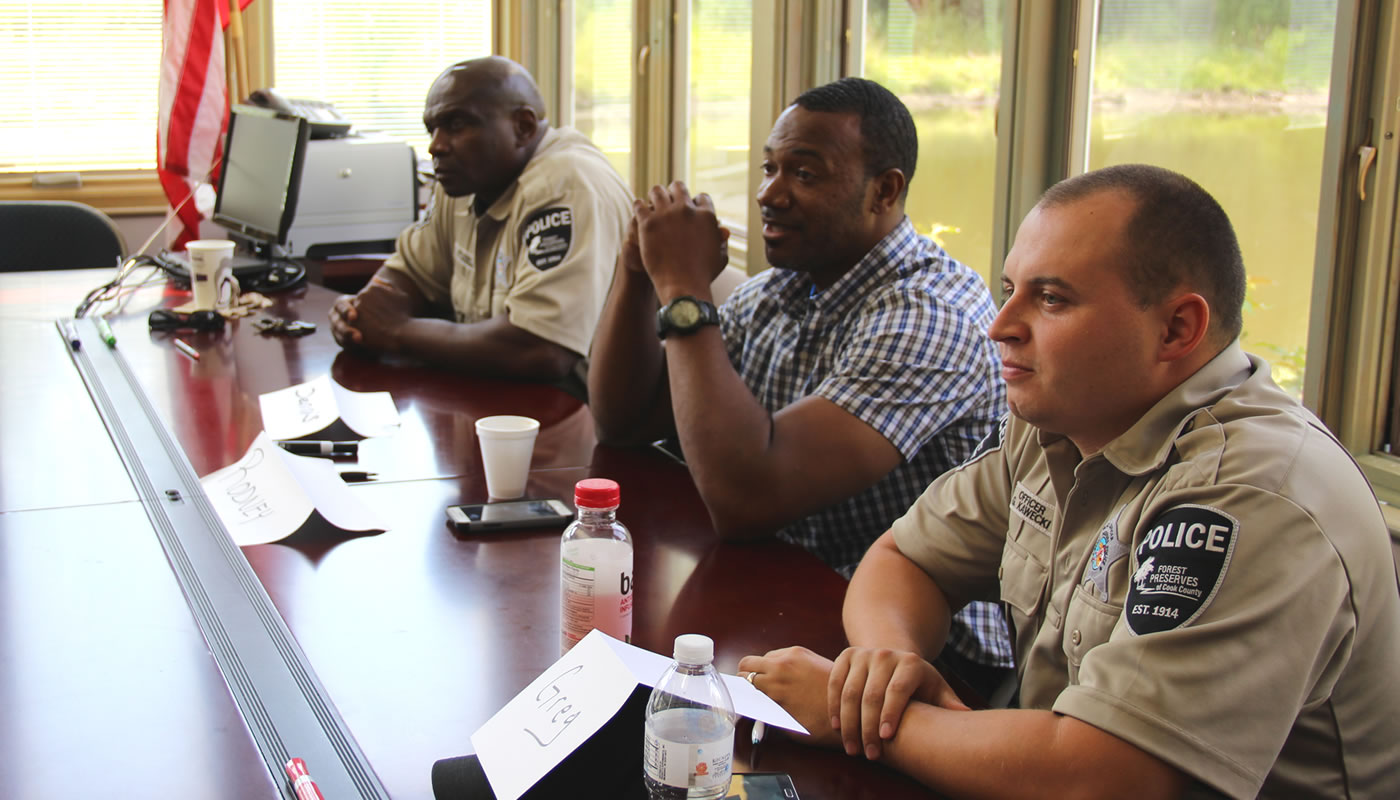Former Chicago Police Lieutenant Bruce Lipman says it all comes down to respect. The former Chicago Police Officer says respect goes both ways, “We took a job to help people and we have to remember that.” Lipman recently spoke to a group of Forest Preserves of Cook County Police Officers at their headquarters in Hinsdale.
The group session was offered as part of a $5,000 Federal Just Assistance Grant (JAG) issued to the Forest Preserves in 2015. Other than the Chicago Police Department, the Forest Preserves is the only other police agency in Illinois to have offered and delivered this cutting edge training to all of their officers.
Officers are taught to enforce the law, but Procedural Justice and Police Legitimacy Training reinforces that officers also have a role to uphold the constitution. Lipman explained people have rights and part of an officer’s job is to make sure proper procedure is followed at all times. “It comes down to respect for the person and respect for their rights,” Lipman said.
Forest Preserves Police Chief John Roberts says the course is not in response to complaints or negative encounters reported by residents, but an attempt to be proactive.
“All officers go through sensitivity training but General Superintendent Randall wanted to offer additional support and training for our officers in order to ensure all visitors are treated with dignity and respect, even when are in a situation that needs police intervention.”
But the training also touched on attitude. Lipman says often times a positive or negative outcome of an incident doesn’t have an impact on police legitimacy. In other words, even if a person is issued a citation in the end, the offender’s overall attitude about an encounter with police has little to do with a receiving a ticket and everything to do with how they were treated.
“Body language and attitude accounts for more than half of what is communicated,” Lipman said. “We have to give people a reason to respect us.”
At a time when police incidents across the country are raising issues about fair treatment and legitimacy, Chief Roberts says this kind of training is even more relevant. “We have to constantly be an example of how it can and should be done,” Roberts said. “There is a right way to talk to people and treat people.”
Officer Rodney Montgomery said he felt the course was valuable, “Every encounter is a new opportunity to change a previous stereotype.”
A useful takeaway said Lipman, who stressed views of police legitimacy are most often based on perception.

